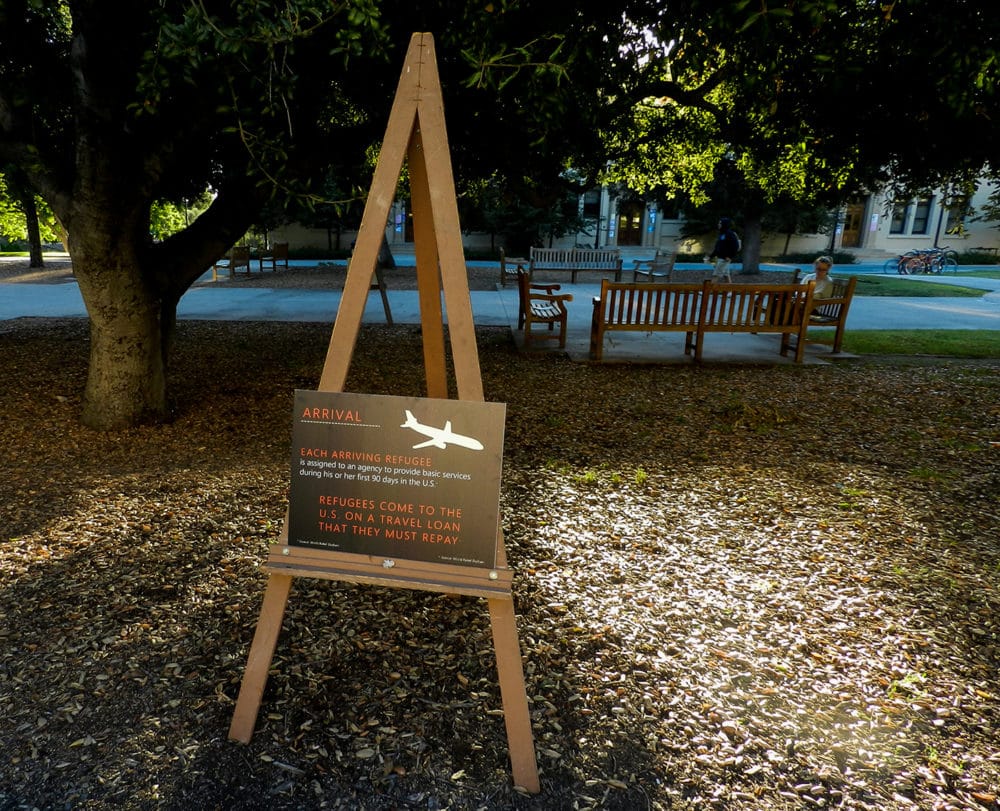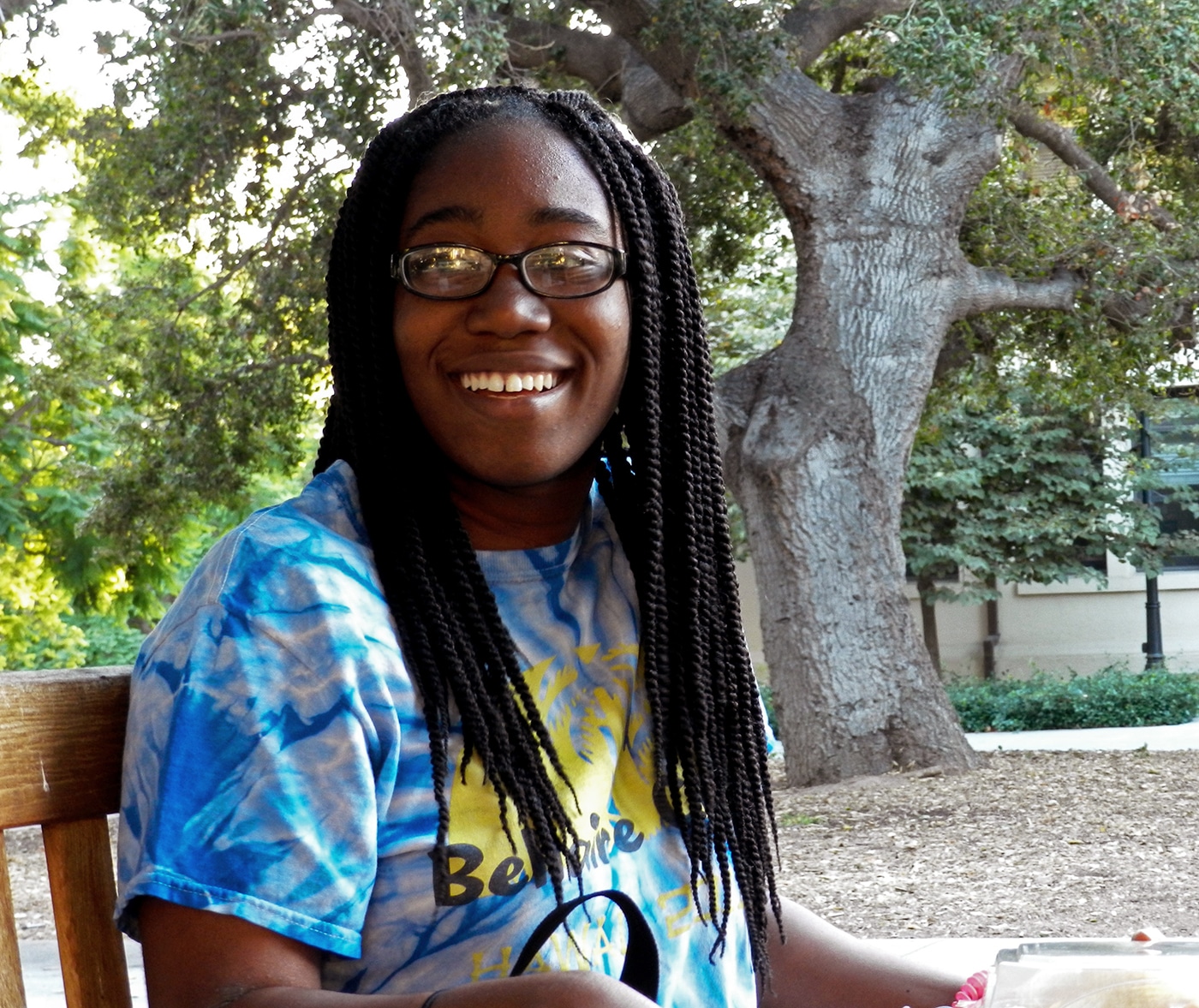
No Lost Generation Oxy (NLGO) is an Occidental College chapter of NLG, a broader network that promotes awareness and understanding of current refugee and migrant crises in LA and around the world. Juliah Lee (senior) founded NLGO in 2016; the student organization serves to address the misconceptions that students and faculty may have about refugees and issues concerning their human rights. NLGO organized a virtual reality screening Oct. 4 that aimed to illustrate the day-to-day life of a refugee and the extra steps and precautions they must take to survive. Additionally, NLGO presented an exhibit of informational posters in the Academic Quad Oct. 11.
Selasi Amoani (junior), the executive director of NLGO, hopes to introduce various interactive exhibits and presentations this year.

“Some people at Occidental have a narrow-minded perception of who a refugee is, and so we are a supportive yet educational place where they can become more informed,” Amoani said.
The exhibit in the Academic Quad consisted of four posters surrounding a group of benches, and each poster featured a definition related to human trafficking and a statistic. One poster defined a refugee as “a person who must leave his or her homeland due to the persecution of beliefs, race, or ethnicity” and included the statistic, “in 2017, 65.6 million people were forcibly displaced.”
The public exhibit in the quad served a different purpose than the more intimate virtual reality screening, according to Amoani.
“We chose to do something public in the quad as well because we knew people had time to take 10 seconds to read a poster, even if they couldn’t come to the screening,” Amoani said.
While the broader international NLG organization is comprised of UNICEF and other human rights groups and focuses on the specific refugee crisis in Iraq and Syria, the Occidental chapter focuses on various refugee crises around the world. An NLGO Facebook post specifies that NLGO “is a club that supports refugees by promoting awareness, fundraising, and sponsoring education initiatives for refugees.” The public display depicted the urgent nature of a refugee crisis through pieces of information that people can easily understand. Amoani believes that facts and figures are more likely to catch someone’s eye than a long story or assortment of news articles.
The virtual reality aspect of the exhibit intended to show people what a refugee sees in their daily life. The simulations varied from cartoons to families in their homes and at religious gatherings. Only one student was allowed into the virtual reality simulation for each film episode. Other students were able to watch and attempt to understand what was going on in the refugee’s life without linguistic context or sounds.
Alejo Maggini (first year) experienced a virtual reality film where he was placed in an animated refugee’s world. Coming from Argentina, he had not participated in a virtual reality simulation before.
“It was interesting because I could feel the pain and hardship that these people were experiencing, but I couldn’t see their actual facial expressions,” Maggini said.
According to Amoani, most of the virtual reality films were intended not to supply viewers with predetermined emotions, but for them to develop those emotions themselves.
“I could feel myself getting sad almost immediately because no one should have to go through what these people live with every day,” Maggini said.
Maggini connected his experiences in the simulation with his Cultural Studies Program (CSP) class on expulsions and refugees. He described the difference between learning academically through textbooks and lectures and learning through the virtual simulation.
“Sometimes we get lost in the academic words of class, but this experience helped me to remember this is about humanity,” Maggini said.
Many students at Occidental have had previous experience with organizations centered on the rights and lives of refugees. Sara Shlibel (sophomore) is a transfer student who took a gap year to work with a refugee rights group that helped Syrian refugees settle into life in America. She joined the club to share her own knowledge of the Syrian refugee crisis and learn more about others.
“I joined this club because I knew I was already interested in the refugee crisis and NLGO became a perfect place for me to continue that work in LA,” Shlibel said.
Although NLGO does not yet work directly with local organizations and businesses in the LA area, they hope to do more of that in the coming year through Occidental and NLG connections.
“I think it would be really interesting for this organization to be a place where students can get directly involved with the refugee crisis and work to help people in the surrounding LA area,” Shlibel said.
![]()






























